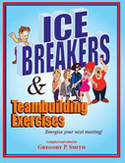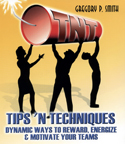Many people go through life satisfied with status quo, stomping ants, handling the routine, not reaching their God-given potential. Others make Hippos fly, reaching their potential, accomplishing something major. Which type of person do you want to be?
The two major components of time management are practice and purpose. The practice component refers to what you do with the minutes of your day. The purpose component refers to finding and knowing your purpose in life. When you manage your time, the minutes of your life, and it falls in alignment with your purpose of your life, you have a fantastic chain reaction. This alignment can enable you to accomplish your tasks more effectively, to reach your goals more quickly, and to give you a greater sense of peace.
Quiet Time
God gave each of us a brain and a soul, but many of us don’t make time to exercise it. I begin each day with a cup of coffee on my front porch. I watch the sun rise, pray, and ask God for direction for this day. I think about my goals and projects, and I listen for new ideas. I then head off to my office to begin work. Every person must make time to think. Schedule an appointment with yourself, close yourself off, and don’t allow interruptions. You will be amazed how clear your life’s purpose as well as the quality of your life will become.
Create A Hippo Goal
The best way to accomplish a major goal is to break it down into smaller pieces. The old saying, “How do you eat an elephant?. . .One bite at a time.” The same is true with major goals. For example, when I wrote my first book, I broke the writing down into smaller pieces. I got up an hour early each day and wrote approximately 250 words. At the end of the week, I had completed a chapter. At the end of the month, I had completed four chapters. I continued on until I completed the book. This process can be applied to almost any major undertaking. Focusing on the smaller parts makes any task much easier and keeps motivation high. When you reach goals, reward yourself.
Greg’s Ten Tips
1. Prioritize. Feeling overwhelmed by all you have to do? Stop and Think–which item must be completed today? This does not include items you’d like to get done today, but only the item(s) that must be completed today. A friend woke up at three in the morning feeling overwhelmed by the many tasks for the coming week and was worried that she could not get it all done. In desperation, she asked herself, what has to be done by Monday afternoon? Tuesday afternoon? The result was she discovered she could indeed accomplish all of her deadlines for the week on schedule when she prioritized!
2. Be realistic. One way to set yourself up for a panic situation is to plan an unrealistic amount of work for one day or one week. Use your common sense to recognize when you have over-scheduled yourself. Enthusiasm is wonderful, but it doesn’t add more hours to the day.
3. Delegate. A person who refuses to delegate will very likely be a very busy and frustrated person. For anyone to personally handle every item is unnecessary and unwise. One very successful regional manager readily attributed part of his success to the fact that he trusted his administrative assistant to handle routine items that did not require his personal decision. This left him free to concentrate on working with sales personnel outside the office.
4. Work Efficiently. For example, make sure your electronic calendar does not cost you time. People who love electronics will shake their heads no at this idea. But sometimes it can take longer to enter and maintain information in a gadget than to jot it down with a pencil in an old-fashioned paper planner.
5. Organize Meetings Wisely. According to a Wall Street Journal survey, meetings account for the greatest amount of unproductive time–topping telephone calls, paperwork and travel. With a little preparation, meetings can be transformed into productive assemblies helping you and your group steam toward, instead of away from, their goals. The key ingredient for a good meeting is preparation. Ask yourself–Is this meeting really necessary? Can the information be presented best another way? If there is still a need for a meeting, plan it well.
6. Learn to Say No! Many people have a tough time saying no. They allow themselves to become members of every committee even ones that are outside their particular talent or spiritual gift. I once knew a man in my church that dedicated his life to youth. He was the pastor’s dream come true. He organized youth trips and retreats. He was always at the church. He taught Sunday school for the youth and they were being led to the Lord. We were all shocked when we learned his wife asked for a separation. She was upset because he spent all his time with the youth and very little with his family. People, who can’t say no, quickly discover their life is out of balance; it is being pulled in the opposite direction. No matter how important the obligation maybe, do not allow your family priorities to suffer.
7. Destroy the Paper Monster. The best guideline for paperwork is to either file it or toss it. We never use 80% of the paperwork we keep. Paper, magazines and other forms create clutter and confusion, which could turn into stress.
Another principle for paperwork is handle it now. Spend 20 seconds filing that important paper now rather than 30 minutes searching for it later. Take a moment to jot down that phone number on your permanent list instead of spending ten minutes tracking it down again later. A third rule for paperwork is organize it. Use colored folders to prioritize your work; colors allow you to see at a glance, which jobs, need your immediate attention. Sub-divide files for greater efficiency. An administrative assistant, tired of rifling through the thick folders left by the previous employee, took time to sub-divide each large file into smaller, separate files. The time saved was worth the time invested in the task and the compliments from the boss who recognized the ease of use of the reorganized files was an unexpected bonus.
8. Manage the Mail. Answer E-mail immediately. Don’t read it and then let it pile up in your in-box; keep your in-box clutter free. Create a “keeper” folder and transfer the mail you want to retain. Create another folder for “actions pending.” Respect other people’s time and avoid forwarding all those stories people love to send you. Delete junk E-mail without reading it and use your filters to eliminate spam. Sort regular mail next to a trashcan. Handle it once-open it or throw it away. Don’t stop doing the important things in your life to sort mail.
9. Make Lists. Making a list can be a legitimate time manager. Keep a pad handy to jot down projects as they arise, items that come to mind to do later, and even phone calls you need to make. At the end of the day or week, whichever is best for you, mark off the items handled. Then, make a fresh list and prioritize the remaining items. This shouldn’t take but a few minutes each day or a little longer if done once a week. Using this process can help you avoid that familiar sinking feeling when you realize you forgot something important and also help you feel on top of things on a daily basis while freeing your mind to concentrate on the job at hand.
10. Allow Time for Fun and Surprises. Don’t carry time management to the point of where everything in your life is plotted, calculated, and placed on a calendar. Allow some spontaneity and fun in your life. I know a manager who decided to invite everyone over to her office for ice cream floats. This was a lot of fun and created a very positive work environment. I know another company that provides their employees 22 tons of M&M’s to eat each year. Every now and then do something nice for someone totally unexpected. Call someone up and tell him or her how much you appreciate them.


















